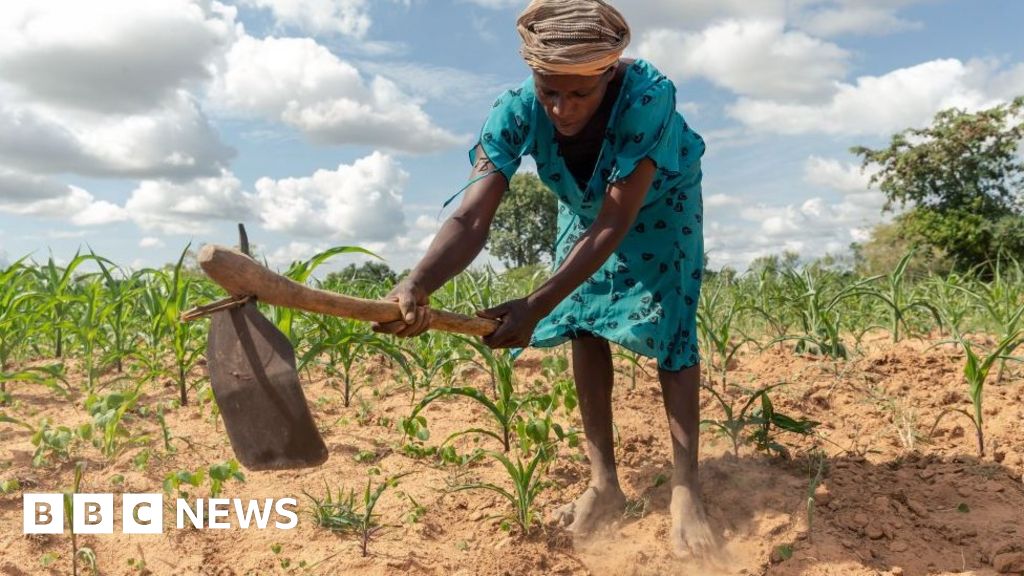Zimbabwean President Emmerson Mnangagwa declared a state of disaster on Wednesday, addressing the impact of the El Nino-induced drought gripping the nation.

Also Read: Brazil: Heavy Rainfall Claims 25 Lives and Displaces Thousands
The declaration comes as humanitarian crisis looming over Southern Africa, as neighboring countries like Zambia and Malawi have also declared states of disaster due to the drought conditions.
President Mnangagwa’s declaration shows the magnitude of the crisis, revealing that more than 80 percent of Zimbabwe has received below-normal rainfall. Over 2.7 million people facing hunger in the nation.
Mnangagwa addressed the need for financial assistance, indicating that Zimbabwe requires over $2 billion to address various interventions necessary for the national response to the crisis.
This funding is important to support food aid initiatives, agricultural interventions and importation of grains to mitigate the impact of the drought.
The drought has affected crop yields with the grain harvest expected to be lower than the nation’s requirements.
Mnangagwa highlighted a grain deficit of nearly 680,000 metric tonnes, necessitating imports to bridge the gap.
The situation underlines the pressing need to ensure food security for all Zimbabweans with measures in place to mobilize resources and redirect efforts towards this goal.
The weather conditions have disrupted agricultural activities, delaying the planting of staple grains and leading to reduced yields.
The summer cropping season faced challenges such as high temperatures, reduced rainfall, and dry spells contributing to the El Nino weather pattern.
Declaration of a state of disaster is a similar actions taken by neighboring countries in Southern Africa.
Malawi, Zambia, and other nations have struggled with crop failures, food shortages, and humanitarian needs as a result of the El Nino-induced weather phenomenon.
Organizations like the World Food Programme (WFP) already providing aid to hundreds of thousands of people in affected districts.
Also Read: World Water Crisis Threatens Peace, UN Report
Donors are urged to contribute generously to alleviate the suffering of those affected by food insecurity and ensure timely intervention to prevent further crisis.
The drought has affected food production and also impacted electricity generation, with Zimbabwe heavily reliant on hydroelectric power.
Reduced water levels in reservoirs have led to challenges in power generation, necessitating alternative measures such as increased focus on solar energy to mitigate the impact on businesses and households.
Mnangagwa revealed statistics stating that more than 2.7 million Zimbabweans are expected to face hunger this year as a result of the drought.
The President addressed that the situation is dire with over 80% of the country experiencing below-normal rainfall leading to crop failures and food shortages. This has left Zimbabwe with a grain deficit of approximately 680,000 metric tonnes.
Mnangagwa outlined the financial requirements for the crisis. He indicated that Zimbabwe requires over $2 billion in aid to implement various interventions at addressing food insecurity and sustaining livelihoods.
The President said the importance of mobilizing resources both domestically and internationally to support the country’s efforts in combating the drought.
The government has prioritized several measures to alleviate the suffering of its citizens. Mnangagwa said the importance of winter cropping to bolster food reserves, alongside efforts to collaborate with the private sector for grain imports.
The government intends to expand winter crop hectarage and explore alternative energy sources such as solar power to mitigate the impact of reduced hydroelectricity production caused by the drought.
The El Nino-induced drought has affected Zimbabwe and has also had effects across the Southern African region. Countries such as Malawi, Zambia, Mozambique, and Namibia are struggling with similar challenges.
Also Read: WMO Issues Red Alert on Climate Crisis After Record Heat























